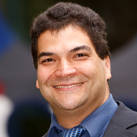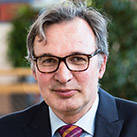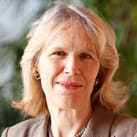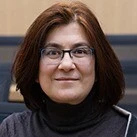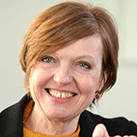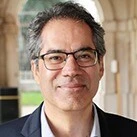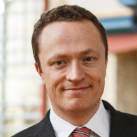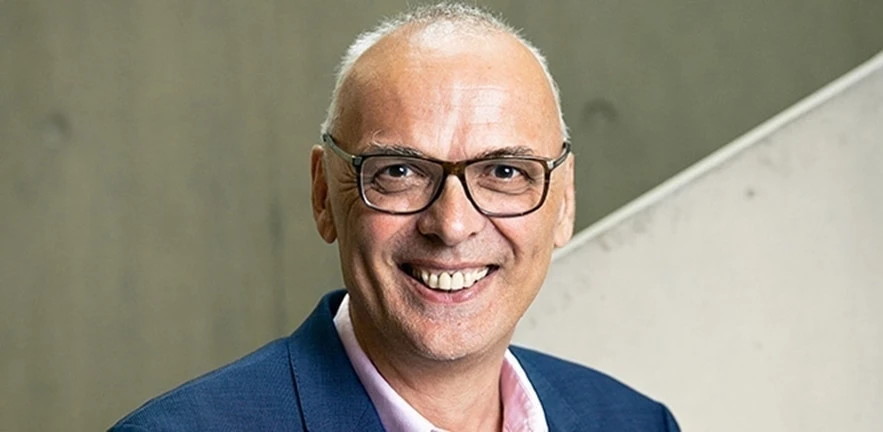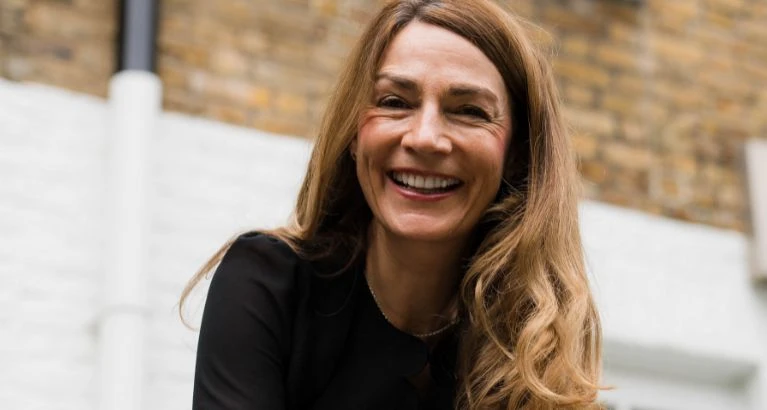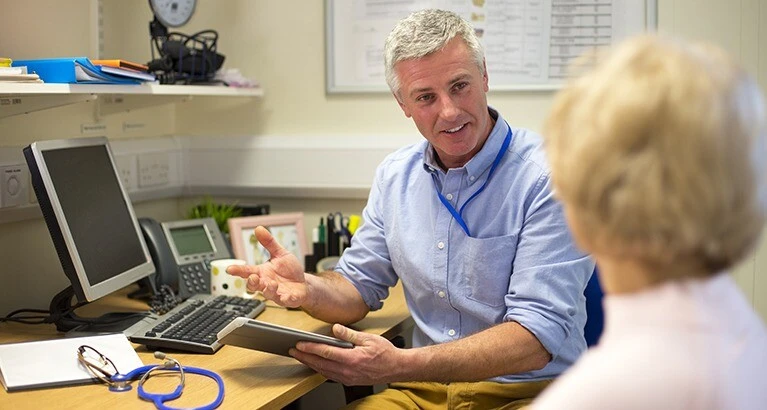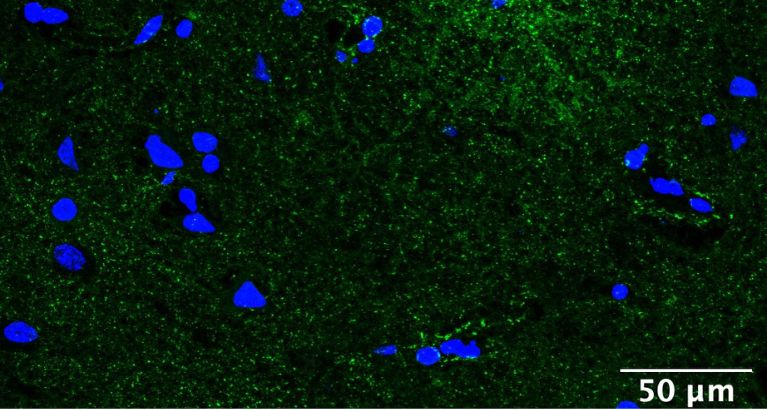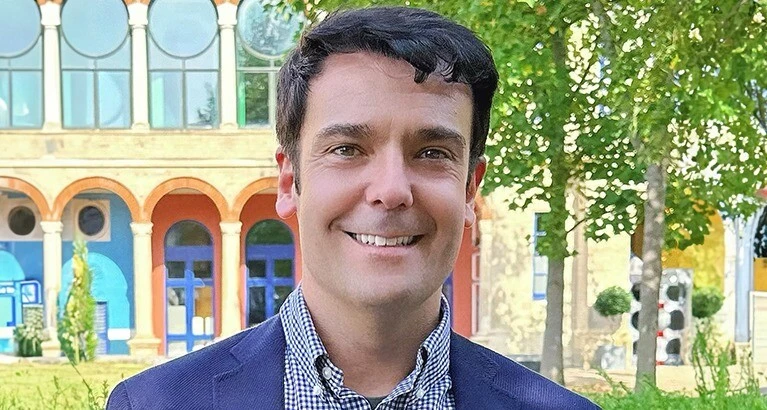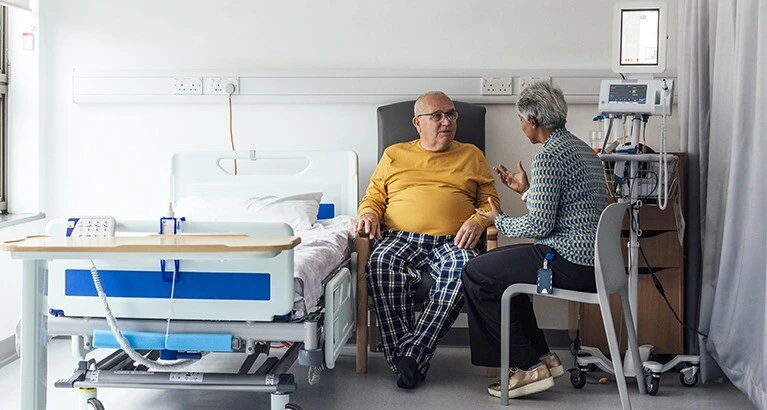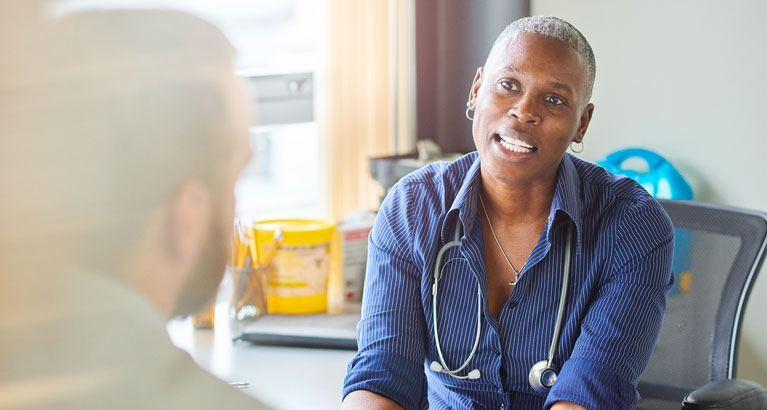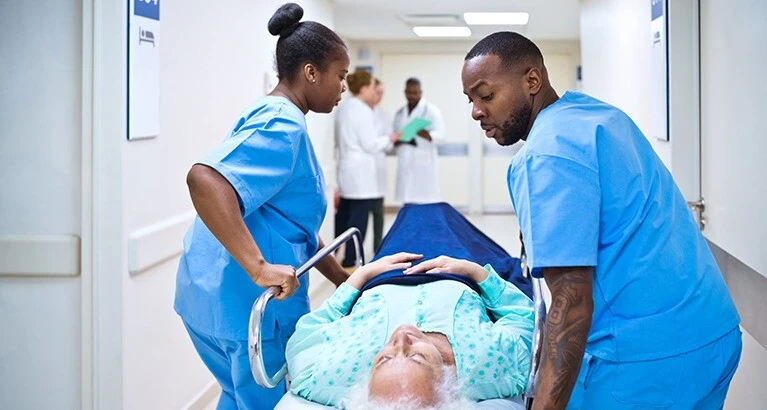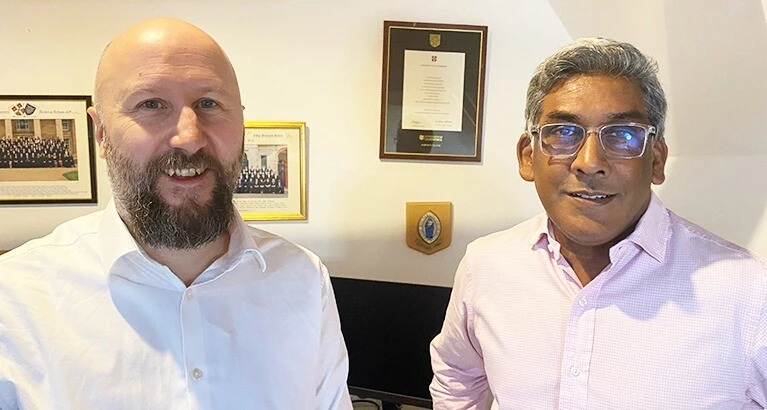Healthcare systems around the world are facing unprecedented pressures, from changes in demographics and patient expectations to challenges in regulatory, financial and political environments. The growing demand for a robust yet affordable healthcare system is putting the system and its leaders under strain.
A dedicated team at Cambridge Judge Business School has been engaging with organisations and individuals within the healthcare sector since 2010; bringing together the intellectual resources and expertise of Cambridge Judge and the wider University to address these challenges, supporting the growth of effective leadership and management in the healthcare system.
Our combination of expertise means we can offer targeted leadership support across several management disciplines, from operations management, information systems and organisational behaviour to marketing, strategy and finance. We are the only leading business school with significant industry experience delivering leadership programmes in the healthcare sector.
The journey of clinical leadership development
Our custom programmes are not designed as a short-term investment in the capabilities of individuals, but as long-term investments in the culture of their organisations. The goal of a clinical leadership development programme is to achieve a fundamental change of culture – away from traditional top-down command-and-control hierarchy to a culture based on an ecosystem of clinical entrepreneurs who work with peers and managers to achieve continuous improvement in the value they deliver to patients. As with all culture change, this takes time.
Cambridge Judge Business School engages with healthcare organisations on this culture change in a genuine partnership. Our job is done when the organisation sustains a new clinical leadership culture on its own.
Jag Aluhwalia
Director of Digital
Cambridge University Hospitals NHS Foundation Trust
Dr Jag Ahluwalia graduated in medicine having studied as an undergraduate at the University of Cambridge and in London. He initially trained in general practice but then developed an interest in paediatrics and in particular in newborn intensive care. Following postgraduate clinical and research training in neonatology in Cambridge and Melbourne he was appointed to the consultant staff at Addenbrookes and the Rosie in 1996 within the regional neonatal intensive care unit. Alongside his clinical practice Jag became increasingly involved in clinical management as unit director, then associate medical director for the trust and then Executive Medical Director, a role he held for nearly 10 years. During his time as Medical Director he has served as Co-Chief Operating Officer, Director of Infection Prevention and Control, Executive lead for Research, Executive Lead for Medical Education and Executive Lead for IT. He also served for many years as clinical lead for the Norfolk, Suffolk and Cambridgeshire neonatal network and as a senior officer of the British Association of Perinatal Medicine for six years. National and regional management roles have included serving as Vice-Chair for NHS Employers’ Consultant Contract Negotiation Team, Chair of Monitor’s Medical Director Advisory Group and as Chair of the East of England Medical Directors’ Forum. Latterly he has served on the National Consultant Clinical Excellence Awards Committee as well as various other invited advisory roles. His published research interests have included neonatal ventilation, the use of nitric oxide in newborns, ethical dilemmas in neonatology and long-term follow-up. He has lectured extensively on these topics as well as in the area of clinical management and leadership and directs or co-directs major training programmes in clinical leadership. He is now the Director of Digital at Cambridge University Hospitals and a Trustee at Macmillan Cancer Support. He graduated with an MBA from Cambridge Judge Business School in 2017 (Cambridge Executive MBA, class of 2015).
Lawrence Ashelford
Chair
Northstowe Health New Town initiative
Lawrence Ashelford has been involved in the UK social care and healthcare sectors for over 30 years. As well as running large-scale operational services in a London borough, he has extensive experience implementing new government policy at corporate, strategic and operational levels, strategy and service development, business planning and public sector investment.
Until May 2013 Lawrence was Director of Strategy, Policy and Planning at Cambridge University Hospitals (Addenbrooke’s) and worked across the Trust and the health and care economy leading on the development of strategy, policy and business planning as well as clinical service development. He has produced successful business cases for a significant number of major infrastructure and service developments as well as undertaking individual and group work to implement change across all clinical service areas. With a strong track record of partnership working across sectors and disciplines, he is currently Chair of the Northstowe Health New Town initiative, a joint programme to promote health in England’s largest planned new town since Milton Keynes, with Homes England, two local authorities, the CCG, and the Cambridge University Institute of Public Health.
Michael Barrett
Professor of Information Systems & Innovation Studies
PhD (University of Cambridge)
Jan Bouwens
Professor of Management Accounting
PhD (Tilburg University)
Dame Sandra Dawson DBE
Fellow (Organisational Theory and Information Systems)
KPMG Professor Emeritus
MA (University of Cambridge)
Mark de Rond
Professor of Organisational Ethnography
DPhil (University of Oxford)
Feryal Erhun
Professor of Operations and Technology Management
PhD (Carnegie Mellon University)
Pam Garside
Fellow in Health Management
Consultant, Newhealth
Pam Garside has had a career in health care systems and digital health in the UK and internationally and is an angel investor in early-stage health tech companies. She is a Fellow at Cambridge Judge Business School, University of Cambridge and a member of the Investment Committee of Cambridge Enterprise. Pam is Chair of Cambridge Angels and sits on the board of Albion Crown Venture Capital Trust. She founded and co-chairs The Cambridge Health Network, a membership group of senior players in the UK health sector. Pam advises a number of life science companies, health technology accelerators and startups in the UK and Europe.
Ahmed Khwaja
Professor of Marketing, Business and Public Enterprise
PhD (University of Minnesota)
Geoff Meeks
Emeritus Professor of Financial Accounting
PhD (University of Edinburgh)
Kamal Munir
Professor of Strategy and Policy
PhD (McGill University)
Andreas Richter
Professor of Organisational Behaviour
PhD (Aston University)
Stefan Scholtes
Dennis Gillings Professor of Health Management
PhD (Karlsruhe University)
Philip Stiles
Associate Professor in Corporate Governance
PhD (University of London)
Dr Philip Stiles is a tenured faculty member at the Judge Business School, University of Cambridge and Director of the Centre for International Human Resource Management.
He has worked at the University of Cambridge for 25 years. He previously worked at London Business School.
He has written 3 books, the most recent of which is “Board Dynamics” published by Cambridge University Press in 2022.
Philip’s principal research area is in board dynamics, people management, leadership, and culture. He has researched with major organisations, including developing a research consortium of companies worldwide – including American Express, BT, EDF, GE, General Mills, Glaxo-SmithKline, IBM, IKEA, Infosys, Matsushita, Oracle, Procter and Gamble, Rolls-Royce, SANYO, Sealed Air, Shell, Siemens, TCL, TNT, and Unilever. This research is focused on the linkages between leadership, culture, and innovation.
Most recently he has worked on a major piece of research, funded by the UK Government to $5 million, on the future of work and technology.
He consults to several organisations in both the private and public sector and is on the advisory board of a start-up organisation in London. He conducts board reviews for a number of organisations.
His executive education work has involved working with a wide range of firms from around the world, from professional service firms in law, accountancy, management consulting and advertising, to corporations such as Barclays, IBM, BT, HSBC, non-profits such as Nature Conservancy, NHS, and UNICEF and scientific organisations such as the Sanger Centre in Cambridge, as well as many start-ups and sports teams.
He teaches 2 core courses on the MBA – Organisational Behaviour and Corporate Governance and he teaches Corporate Governance on the Executive MBA He also teaches Corporate Governance on the Master of Accounting course.
Philip has won several awards for research and teaching, including the University of Cambridge Pilkington prize for Teaching Excellence and teacher of the year for the MBA.
He has also won an IBM faculty award for his work with IBM in the area of Services Science.
He is a board advisor to 2 companies, both start-ups, in the Cambridge area.
Leadership and organisational behaviour
How to reconcile differing work practices after a merger
Research by Dr Karla Sayegh develops a model to explain how groups of professionals can resolve differences in work approaches after organisations merge, through both scientific and experience-based knowledge. Professionals have deep, proven expertise so they hold tight to their ways of working. That’s why reconciling work practice differences is delicate and difficult. But it is not impossible.
AI and technology
How psychometrics can enhance AI healthcare evaluation
Artificial intelligence holds great promise in healthcare. Yet such use of AI use poses risks, especially in relying on benchmarks to evaluate medical expertise and practice. Research co-authored at the Psychometrics Centre at Cambridge Judge Business School outlines a better methodology that improves benchmarking through the application of psychometrics.
Programme news
Cambridge alumna recognised by Royal Society for healthtech
Dr Millicent Stone, an alumna of Cambridge Judge Business School's Master of Studies in Entrepreneurship, has been recognised by the Royal Society as a pioneering healthtech entrepreneur. Her personal journey as a mother navigating the healthcare system inspired her to found iOWNA, an award-winning digital health platform transforming patient care. Dr. Stone's story is a testament to how deep personal experience combined with strategic business acumen can lead to impactful innovations and inspire future changemakers.
Research centre news
New research on health resilience in conflict zones
The Centre for Business Research (CBR) at the University of Cambridge has published a policy brief by Dr Mona Jebril, Research Associate at CBR, on innovative strategies to strengthen health resilience amidst war and humanitarian crises in Gaza and similar conflict-affected areas.
Generic drugs can be supplied at savings of over 60% for patients and 90% for payers through a health care utility model that emphasises reliable supply at affordable cost rather than profits, says a new study from Cambridge Judge Business School and US healthcare firm Intermountain Health.
Operations management
How repeat visits to the same GP can save cost and boost healthcare outcomes
Continuity of care through seeing the same GP regularly helps patients, doctors and hospitals, says a series of studies co-authored by Professor Stefan Scholtes.
Research centre news
Cellestial Health announces investment from Zinc VC
Cellestial Health, a Cambridge spinout, is pioneering astrocyte-targeting therapeutics to treat Parkinson’s Disease and other brain disorders. Backed by pre-seed funding from Zinc VC, the startup is advancing a lead drug candidate through preclinical stages. Founded by Dr Nataly Hastings, Cellestial’s innovative approach focuses on reducing brain inflammation and preventing harmful protein buildup, with potential applications in multiple neurological conditions. Supported by a team of experts, the company aims to transform neurodegenerative care and improve patient outcomes.
Operations management
How consecutive workdays affect healthcare services
Long periods of consecutive working days in intensive care units negatively affect the quality of care, says research co-authored by Stefan Scholtes.
Operations management
Reimagining healthcare at the heart of the Business School
In this insightful interview, Stefan Scholtes, Director of the Cambridge Centre for Health Leadership and Enterprise discusses the Centre's mission to create new types of healthcare organisations that can improve health outcomes at scale. Positioned within the Business School, the Centre focuses on implementing innovative business models that prioritise accessibility, affordability, and equity in healthcare delivery. Learn how the Centre’s unique “think-do” approach, emphasis on structural transformation, and collaborations with industry and government are reshaping the future of healthcare.…
AI and technology
Cambridge Judge alumnus on breaking barriers in cancer care
Cambridge Judge Business School alumnus Luis Garcia-Gancedo (EMBA 2019), Senior Director of Oncology Digital Health Strategy at Evinova (AstraZeneca), discusses barriers inhibiting equitable cancer treatment.
Entrepreneurship and innovation
Fighting cancer: how biotech companies are making an impact
Amid rising cancer concerns, scientists and entrepreneurs worldwide are racing to develop novel treatments. Independent biotech companies, often more cost-effective than pharmaceutical giants, play a crucial role in this uncertain landscape, exemplified by the success of checkpoint inhibitors – a ground-breaking class of cancer therapies.
Research at Cambridge Judge builds on previous study on cardiovascular care that involved higher treatment capacity and less-invasive procedures.
Research co-authored by Professor Stefan Scholtes of Cambridge Judge Business School highlights benefits of consistent doctor visits – both for patients and for GP workload in the NHS.
Major trauma patients have doubled in the past decade in the East of England, the increase in demand is likely to continue, and reorganisation and development of the trauma network are imminently needed, says a new report from Cambridge Judge Business School and NHS England.
Faculty news
Do remote drug trials work?
When COVID-19 travel restrictions were introduced, it sparked a trend towards remote participation in clinical assessments of new medicines’ safety and efficacy. A new study co-authored at Cambridge Judge Business School outlines a framework to assess when decentralised drug trials provide the greatest value to the system.
Research centre news
Generic drugs: how to boost supply and lower prices
Increased drug supply security and reduced costs has been achieved by Civica Rx, a health care utility taking a fresh approach, says study in NEJM Catalyst authored by 2 Cambridge Judge Business School academics.
Faculty news
Saving hospitals money by reducing no-shows
Missed hospital appointments may be reduced if clinics encourage patients to rebook their own appointments when clinics need to reschedule, says new study co-authored by Professor Houyuan Jiang of Cambridge Judge.
Programme news
Executive MBA alumni launch new business to tackle health inequality using the power of AI
Executive MBA alumni from contrasting backgrounds have formed an unlikely partnership to achieve a shared goal: reducing health inequality and improve access to care for underserved populations.
Two recent studies co-authored by Professor Shahzad Ansari of Cambridge Judge Business School named to Honor Roll of Responsible Research in Business & Management.
From fintech and finance to consulting and healthcare, we meet some of our most recent female Cambridge MBA graduates who are looking to make an impact in their careers.
Read healthcare-related news & insight from Cambridge Judge Business School




